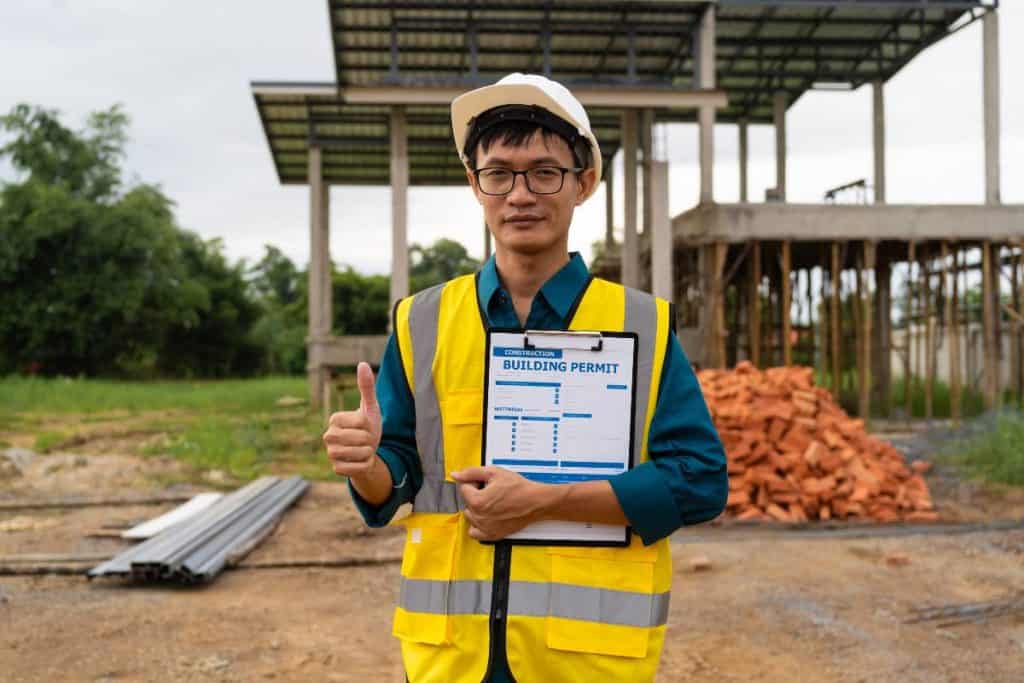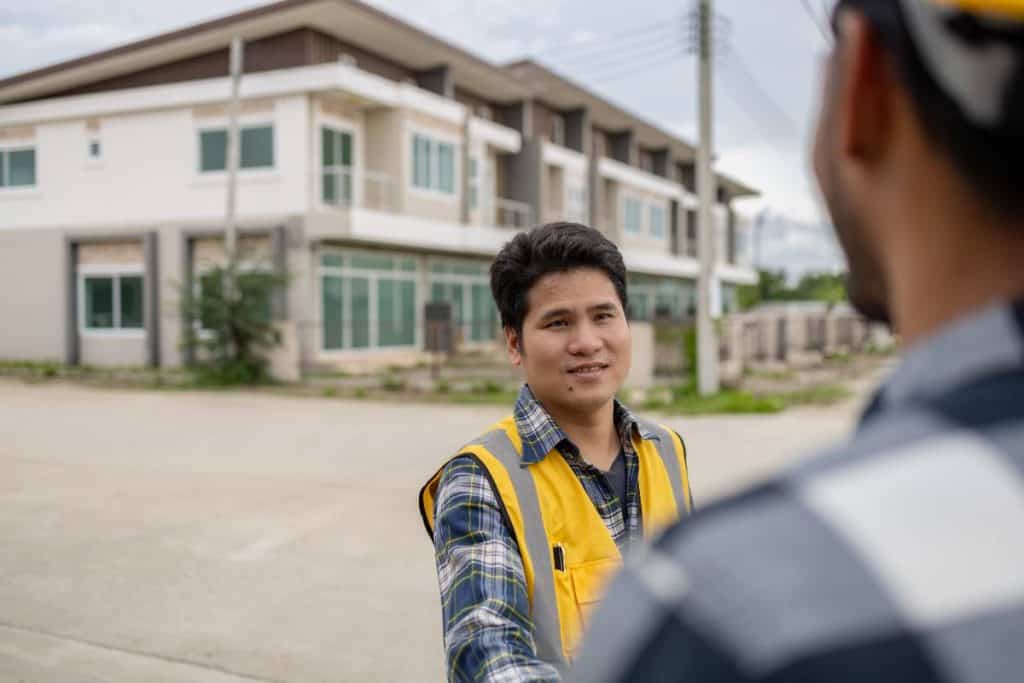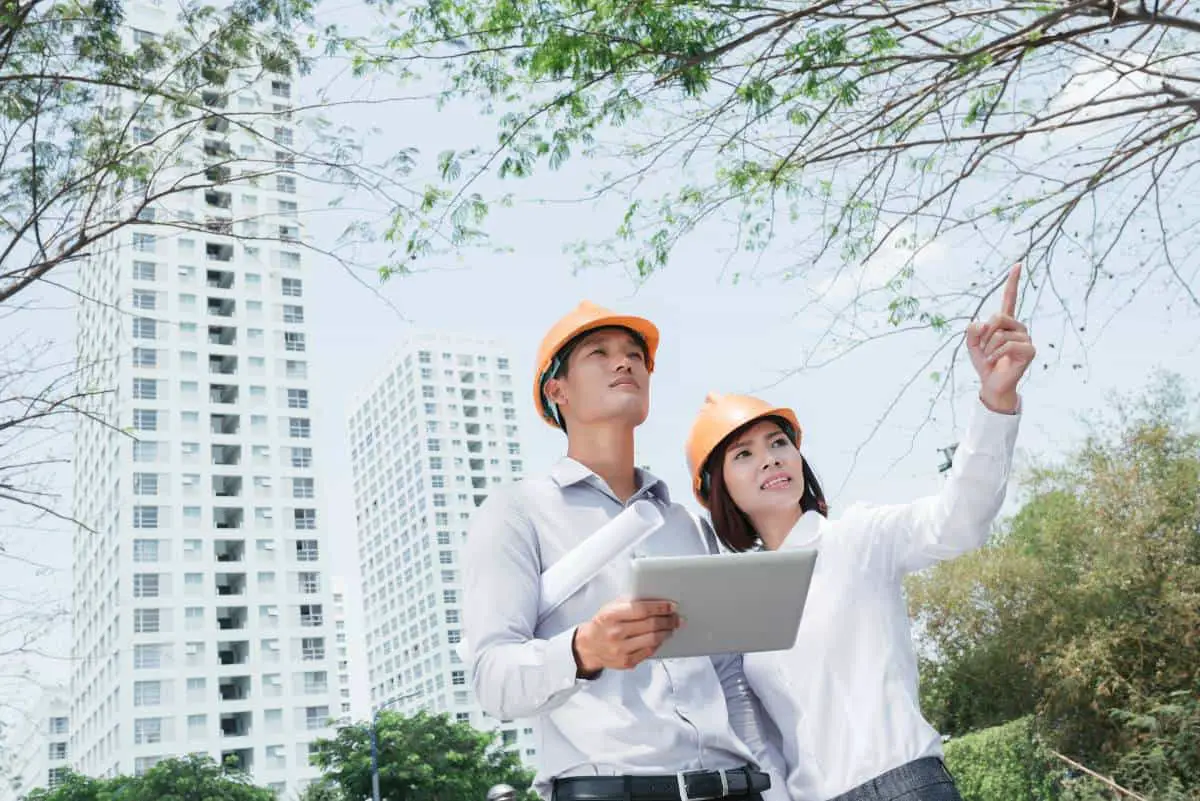Navigating Property Inspection Thailand: A Comprehensive Guide
Tom Kitti here from BetterLivingAsia.com. Today, we’re diving into the world of property inspection in Thailand. Whether you’re dreaming of a beachfront condo in Phuket or a cozy house in Chiang Mai, one thing’s for sure – you’ll want to know exactly what you’re getting into before signing on the dotted line.
As someone who’s been through the process of relocating to Thailand after 35 years in the US, I can tell you that property inspection is not just a fancy term real estate agents throw around. It’s your golden ticket to peace of mind in the exciting (and sometimes overwhelming) Thai real estate market. So, grab a cup of Thai iced tea, and let’s explore the ins and outs of property inspection in the Land of Smiles!
Key Takeaways
- Property inspection is crucial for making informed real estate decisions in Thailand
- Understanding regional differences and legal aspects is essential for a thorough inspection
- Modern technology and environmental considerations play a significant role in Thai property inspections
Understanding Property Inspection in Thailand
Now, you might be wondering, “Tom, what exactly is property inspection, and why should I care?” Well, my friends, property inspection is like getting a full health check-up for your potential new home or investment. It’s a thorough examination of a property to assess its condition, identify any issues, and help you make an informed decision.
In Thailand, we typically deal with three main types of inspections: home inspection for houses, condo inspection for those lovely high-rises, and land inspection for when you’re feeling a bit more ambitious. Each type has its own quirks and focuses, but they all serve the same purpose – to give you the lowdown on your potential property.
But here’s the kicker – Thailand has its own set of rules when it comes to property. The legal framework is primarily governed by the Building Control Act, the Land Development Allocation Act, and the Condominium Act. These laws might sound as exciting as watching paint dry, but trust me, understanding them can save you from future headaches!
Key Areas of Property Inspection
Alright, let’s get down to the nitty-gritty. When you’re getting a property inspected in Thailand, there’s a whole checklist of areas to cover. We’re talking about structural integrity, electrical systems, plumbing, HVAC, and both interior and exterior elements.
When it comes to structural integrity, your inspector will be looking at the foundation, walls, ceilings, and roof. They’re checking for any cracks, shifts, or signs of water damage that could spell trouble down the road. In Thailand’s tropical climate, water damage is no joke – it can lead to mold faster than you can say “sawadee krap”!
Electrical systems are another biggie. Your inspector will be checking out the wiring, outlets, switches, and electrical panels. In Thailand, it’s not uncommon to find some, shall we say, creative wiring solutions. You want to make sure everything’s up to code and not likely to turn your new home into a light show.
Plumbing is next on the list. Your inspector will be testing water pressure, checking for leaks, and making sure the drainage is up to snuff. Trust me, you don’t want to deal with plumbing issues in the middle of Thailand’s rainy season!
HVAC systems are crucial in Thailand’s hot and humid climate. Your inspector will make sure the air conditioning units are working efficiently and that there’s proper ventilation throughout the property. After all, you want your new Thai home to be a cool oasis, not a sauna!
For interior elements, they’ll be looking at floors, windows, doors, and checking for any signs of moisture or mold. And don’t forget the exterior – landscaping, drainage systems, and access roads all play a part in your property’s overall health.
Remember, in Thailand, each of these areas might have unique challenges due to the climate and local building practices. It’s not just about ticking boxes; it’s about understanding how these elements interact in a Thai context.
The Property Inspection Process in Thailand
So, how do you go about getting your dream Thai property inspected? Let me break it down for you. First things first, you’ll need to hire a professional inspector. Look for someone with experience in Thai properties who can speak both English and Thai. They should understand local building practices and regulations.
Now, let’s talk money. A thorough inspection isn’t cheap, but it’s worth every baht. Expect to pay anywhere from 10,000 to 30,000 baht, depending on the property size and complexity. Trust me, it’s a small price to pay for peace of mind.
The inspection process itself usually takes about 2-4 hours. Your inspector will start with a visual inspection, channeling their inner Sherlock Holmes as they examine every nook and cranny. Then comes the systems testing – get ready for some switch-flipping and knob-turning action!
After the inspection, you’ll receive a detailed report of the findings. This usually takes a few days, so don’t worry if you don’t get instant results. And here’s a pro tip: don’t be shy about asking questions during the inspection. It’s your potential property, after all!

Legal and Documentation Aspects
Now, let’s talk paperwork – I know, I know, it’s not the most exciting part, but it’s crucial in Thailand. First up is land title verification. In Thailand, the gold standard is the Chanote title, but there are others like Nor Sor 3 Gor. Make sure you understand what type of title you’re dealing with and check for any encumbrances. You don’t want your dream property to be tied up in legal knots!
Building permits and certificates are next on the list. Always verify these. You’d be surprised how many buildings in Thailand have, shall we say, creative interpretations of permits. Zoning regulations and restrictions are also important to consider. Each area has its own rules, so what flies in Pattaya might not work in Bangkok.
And for my fellow expats out there, pay special attention to foreign ownership considerations. Understanding these rules can save you a world of trouble later. Remember, while foreigners can own condominiums outright, land ownership is a whole different ballgame.
Common Issues Found During Thai Property Inspections
In my years of experience, I’ve seen my fair share of property issues in Thailand. Structural problems are common, often due to settling or poor initial construction. Electrical and plumbing defects can be like a game of “guess the wire” sometimes. And thanks to our lovely tropical climate, moisture and mold issues are always lurking.
But perhaps the trickiest issues are the legal and documentation discrepancies. Always double-check those papers! It’s not uncommon to find properties with unclear ownership histories or missing permits. These might not be deal-breakers, but they’re definitely something you want to know about before signing on the dotted line.
Leveraging Inspection Results
Got your inspection report? Great! Now, what do you do with it? Well, this is where the fun begins. If the inspection revealed issues, you’ve got some bargaining power. You can negotiate the purchase price based on the needed repairs or improvements.
Alternatively, you can request that the seller fix these issues before you move in. Some sellers are willing to make repairs to close the deal. But remember, sometimes the best decision is to walk away. If the issues are too severe or costly, it might be better to keep looking for your perfect Thai property.
Regional Considerations for Property Inspection
Thailand is a diverse country, and each region has its own property quirks. In the Bangkok metropolitan area, keep an eye out for subsidence and flood risks. Those towering skyscrapers look great, but you want to make sure they’re on solid ground.
If you’re looking at coastal areas like Phuket, Pattaya, or Hua Hin, saltwater corrosion is a real issue. That sea breeze is lovely, but it can wreak havoc on building materials over time. Up in Northern Thailand, places like Chiang Mai face seasonal smog, which can impact your ventilation needs.
A good inspector will know the local issues to look out for. They’ll understand how the regional climate, geology, and even local building practices can affect a property. So when you’re choosing an inspector, make sure they’re familiar with the specific area you’re interested in.
Technology in Property Inspection
Welcome to the 21st century, folks! Modern property inspection in Thailand isn’t just about clipboards and flashlights anymore. These days, inspectors are using all sorts of high-tech gadgets to get a better look at your potential property.
Drones, for instance, are becoming increasingly popular for exterior and roof inspections. They can get to those hard-to-reach places and give a bird’s eye view of the property. Thermal imaging cameras are another cool tool, used for detecting moisture and insulation issues. It’s like giving your property a fever check!
Digital reporting tools have also revolutionized the inspection process. Instead of waiting days for a paper report, you can often get detailed, interactive digital reports much faster. Some even include 360-degree photos or videos of the property.
And in this post-COVID world, virtual inspections are becoming more common. While they can’t completely replace an in-person inspection, they can be a useful first step, especially if you’re not able to visit the property in person right away.
Environmental and Sustainability Considerations
Going green isn’t just a trend; it’s the future, especially in a country as naturally beautiful as Thailand. When inspecting a property, it’s worth considering its environmental impact and sustainability features.
Energy efficiency is a big one. In Thailand’s hot climate, an energy-efficient home can save you a bundle on electricity bills. Look for things like good insulation, energy-efficient appliances, and smart home features that can help manage energy use.
Water conservation is another important factor, especially in a country that faces periodic droughts. Features like low-flow fixtures and rainwater harvesting systems can make a big difference.
Consider the building materials too. Sustainable, locally-sourced materials are not only good for the environment but can also be more durable in Thailand’s climate. And don’t forget to think about how the property interacts with its surroundings. A home that works with nature rather than against it will generally be more pleasant to live in and easier to maintain.

Post-Inspection Considerations
So, you’ve got your inspection report. Now what? First things first, take the time to really understand the report. It might not be the most exciting read, but it’s packed with important information about your potential new home.
Next, prioritize any repairs or improvements that need to be made. Some issues might need immediate attention, while others can wait. This is where you’ll need to balance your budget with your must-haves and nice-to-haves.
Think long-term too. Use the inspection report to create a maintenance plan for your property. Regular maintenance can prevent small issues from becoming big, expensive problems down the line.
Sometimes a follow-up inspection can be worthwhile. If major issues were found or significant repairs were made, a second look can give you peace of mind before you finalize your purchase.
FAQs
How much does a property inspection typically cost in Thailand?
Property inspections in Thailand usually cost between 10,000 and 30,000 baht, depending on the size and complexity of the property.
Can foreigners own property in Thailand, and how does this affect the inspection process?
Foreigners can own condominiums outright but cannot own land. This doesn’t directly affect the inspection process, but it’s crucial to understand ownership laws before investing.
What are the most common red flags to look out for during a Thai property inspection?
Common red flags include structural issues, electrical and plumbing defects, moisture problems, and legal discrepancies in property documents.
How long does a typical property inspection take in Thailand?
A typical property inspection in Thailand takes about 2-4 hours, with the report usually following within a few days.
What should I do if a property inspection reveals major issues with a Thai property I’m interested in buying?
If major issues are found, you can negotiate the price, request repairs, or reconsider the purchase. Always consult with your real estate advisor to make the best decision.
Conclusion
A thorough property inspection is your best friend when investing in Thai real estate. It’s not just about finding problems; it’s about understanding your potential new home or investment inside and out.
At BetterLivingAsia.com, we’re all about helping you make the most of your Asian adventure. Whether you’re retiring, working, or starting a business in Thailand, we’ve got your back.
Have questions about property inspection in Thailand? We’re here to help! Feel free to message us with any queries you might have. Our team will do our best to provide you with the information and guidance you need to navigate the Thai real estate market with confidence.






